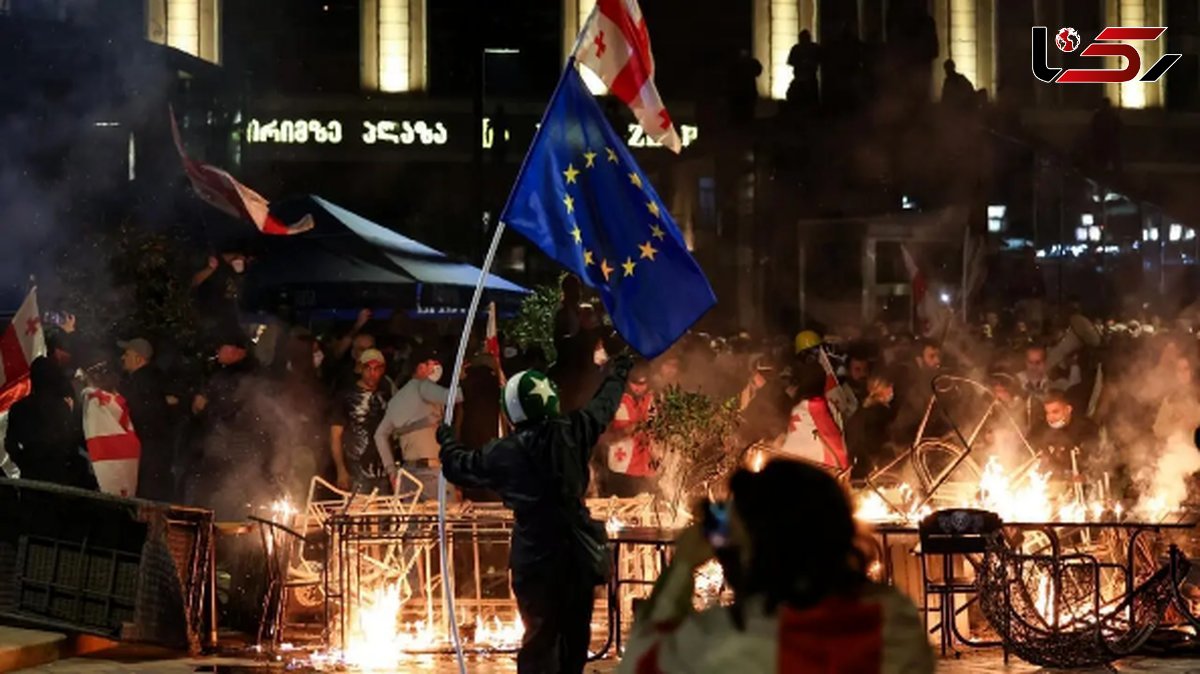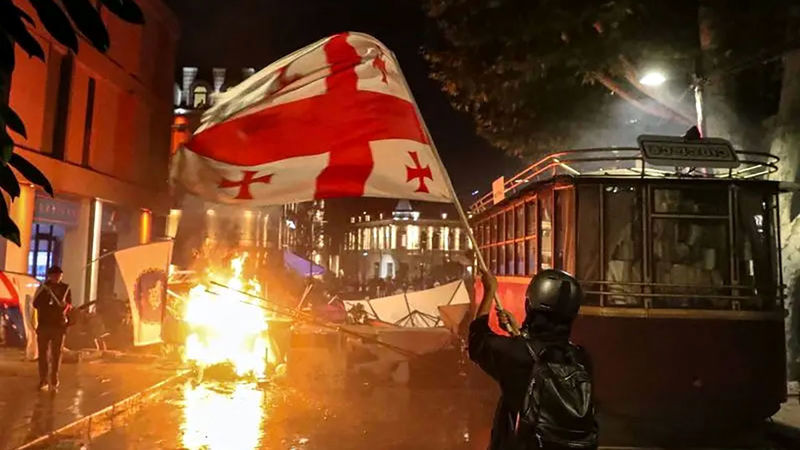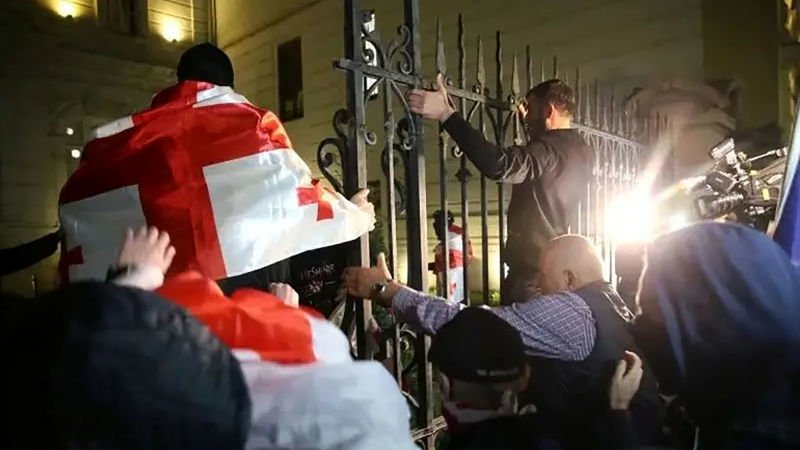News Report: Massive Protests Rock Georgia amid Tensions Over Democracy, EU Bid
Rokna Political Desk: Widespread protests and intense clashes between demonstrators and police have captured the world’s attention in recent days, as Georgians express growing dissent against the ruling Georgian Dream party.

According to reports, protests and street battles between demonstrators and Georgian police have continued for several days, making Georgia one of the top stories in major world media outlets.
International agencies reported on Saturday that large-scale confrontations broke out in the Georgian capital.
Police Clash with Protesters in Tbilisi
On Saturday, October 4, international media — including the U.S. Associated Press — reported that Georgian police used water cannons and pepper spray to push back protesters who attempted to storm the presidential palace.
The outlet noted that this South Caucasus nation had recently held municipal elections, which were boycotted by major opposition parties.
According to the Associated Press, tens of thousands of people gathered in Tbilisi, the capital, to protest what they described as the repressive policies of the ruling Georgian Dream party.

A Year of Opposition Protests Against the Pro-Russian Ruling Party
However, the clashes between protesters and Georgian police did not begin just a few days ago. Reports indicate that the demonstrations have deep roots going back nearly a year.
In an article published in May 2024 titled “Why Have Protests in Georgia Erupted Again?” the Journal of Democracy wrote:
“Once again, the Republic of Georgia finds itself in the midst of an escalating political crisis — a recurring scenario over recent years. The latest unrest began after the ruling Georgian Dream party reintroduced the so-called ‘Foreign Agents’ law.”
Georgian citizens commonly refer to this law as the ‘Russian Law’, as it mirrors legislation introduced by Russian President Vladimir Putin in 2012 to suppress civil society.
Underlying Causes of the Protests
Beyond the controversial “Foreign Agents” law — which the Western-leaning opposition condemns as a copy of Russian policy — another key factor behind the unrest is the government’s suspension of talks on Georgia’s accession to the European Union.
According to Al Jazeera, in a report published on December 3, 2024, titled “Georgia Protests: What Lies Behind the Unrest and What Comes Next?”, demonstrations erupted after Prime Minister Irakli Kobakhidze postponed the country’s EU membership bid until 2028.
At the time, tens of thousands of Georgians took to the streets to protest the decision of the ruling Georgian Dream party, clashing with riot police over what they saw as a betrayal of the nation’s pro-European aspirations.
Another factor fueling the anger was last year’s parliamentary election, which the ruling party claimed to have won — a result the opposition denounced as fraudulent. Following the vote, former Georgian President Salome Zourabichvili rejected the results and called for mass demonstrations.
Zourabichvili said that Georgia had fallen victim to what she described as a “special Russian operation.” This remark is significant given that the Georgian Dream party, in power since 2012, is widely viewed as pro-Moscow.

“We Don’t Want to Return to the Soviet Era”
The Associated Press quoted one protester as saying:
“We are fighting for our rights and our independence. We do not want to return to the days of the Soviet Union, when Georgia was ruled from Moscow.”
Prime Minister Accuses Protesters of Seeking to Overthrow the Government
In response to the mass demonstrations, Prime Minister Irakli Kobakhidze announced a comprehensive crackdown on dissent, accusing protesters of attempting to storm the presidential palace and overthrow his government.
He also alleged that the European Union was involved in fomenting instability in Georgia.
Send Comments